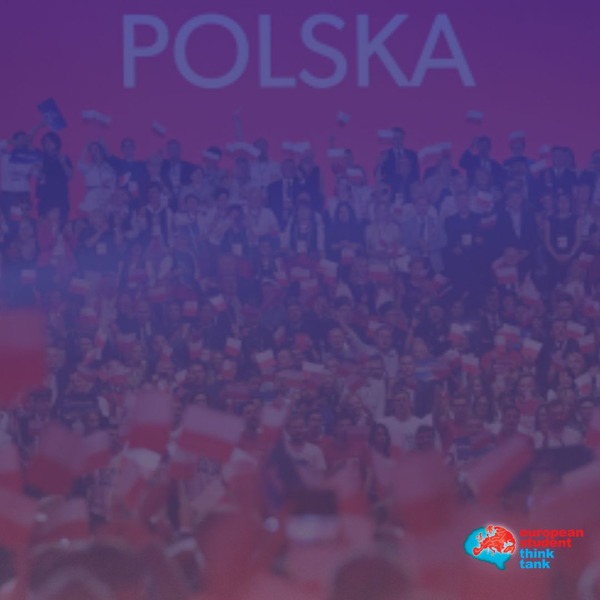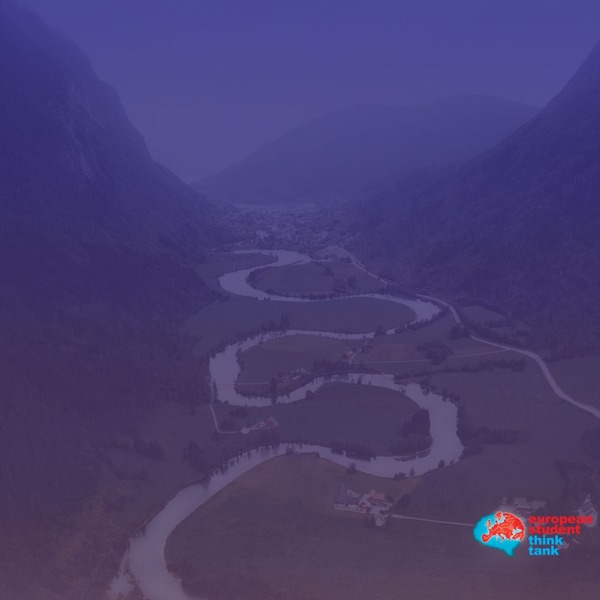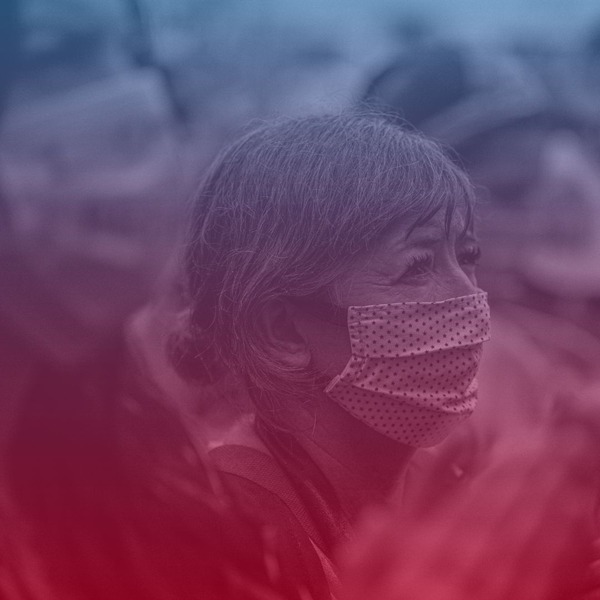By Alexis Chalopin, Student in European Studies (Sciences Po & London School of Economics).
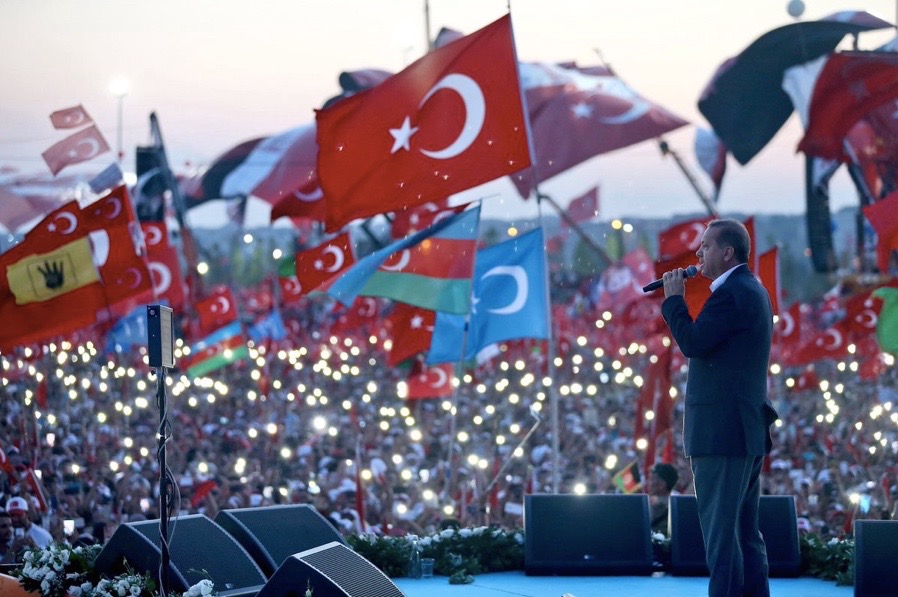
‘The European Union needs Turkey more than Turkey needs the European Union’
– Recep Tayyip Erdoğan, President of Turkey
Backpedaling on the road to democracy
The media are often sensitive to that which is closest related to them. Erdoğan’s takeover of Zamman, a leading Turkish opposition newspaper, made headlines in Europe in spring 2016. However, this is not all bad: we have realised that Turkey, so close to us, distances itself increasingly from the democratic model proposed by Europe.
During the summer of 2002, the Turkish Parliament decided to abolish the death penalty with a view to reconcile Turkey’s policies with the principles of the European Union (Article 2 of the Charter of Fundamental Rights of the European Union prohibits any capital punishment and is legally binding for the Member States). A return of the death penalty does not only go against this article, but also violates protocols 6 and 13 of the Council of Europe (CoE), and Turkey could therefore be excluded of the Council. It is possible to see two elements in Mr Erdoğan’s stance on the need to reexamine the question of death penalty with the Parliament and in his assertion that it is up to the people to judge the application of a death penalty sentence. First, there is a move away from Western society, which the Turkish media criticized increasingly for Erdoğan’s misdeeds on manners and his misunderstanding of Turkey (including Yeni Akit, a leading pro-Erdoğan newspaper). Then, this will to surrender power to the people is nothing but demagogy.
This demagogy is also expressed in the unitary vision of the Turkish people proposed by the Justice and Development Party (AKP), which crystallises around the Kurdish problem. The Kurdish minority in Turkey is subject to numerous restrictions, and international observers have noted few violations of human rights. The Kurdistan Workers’ Party (PKK), which has led several terrorist attacks against the Turks, is also Mr Erdoğan’s number one public enemy.
The purges in government (especially marked by the sacking of Ahmet Davutoğlu, Prime Minister from 2014 to 2016), and within the AKP, from which President Erdoğan originally comes from, have made the head of state an unchallenged and seemingly untouchable power figure. These dismissals —which have not spared the economic sphere— have also emphasized the political line followed by Mr Erdoğan, who is more conservative on the societal level than its predecessors. Moreover, Mr Erdoğan is also accused of violating the provisions of the Constitution on the political neutrality of the presidential office.
A fragile Turkish society
Yet, Erdoğan’s era does not come out of nowhere. The AKP came to power in a wave of frustrations related to the country’s economic situation. Since then, Mr Erdoğan has been willing to be part of a broader Turkish history. While economically he carried on with market reforms, at the societal level he wants to embody continuity with the ‘Great History’ narrative.
The six principles of Kemalism — named after the first Turkish President, Mustafa Kemal Ataturk, who founded the Republic – have been expressed formally in the 1937 Constitution: ‘The Turkish state is republican, nationalist, populist, statist, secular and reformer’. What is striking today is that religious tensions which are emerging in Europe did not spare today’s Turkey, and contradict Ataturk’s principles. President Erdoğan, who was jailed for four months in late 1990s for ‘threatening secularism’, having recited verses from Gökalp (a Turkish pan-islamist poet and sociologist), is somehow a witness of this religious revival. He followed the rise of Recep Tayyip Erdoğan, from Mayor of Istanbul to President. Back in power as Prime Minister (2003) and then as President (2014), Mr Erdoğan has returned to a form of Ottomanism, especially during election campaigns. This propensity to recall the Ottoman myth at the heart of contemporary politics has made Mr Erdogan a kind of new Turkish sultan.
The attempted coup on the night of July 15th, 2016 is the consequence of this authoritarian drift apart from the Kemalist republican tradition. The coup, led by several factions from all Turkish army corps, aimed to ‘restore democracy.’ Calls of President Erdoğan and President Gül on CNN Türk via FaceTime incited the people to rebel against the establishment of martial law instated by the putschists. Beyond an attempted coup which has been similar to those Turkey has known numerous times in its history (in 1960, 1971, 1980 and 1997), it is the impact, repression, which shows the true nature of Mr Erdogan’s regime. According to the Turkish president, mass arrests after the failed putsch were criticized too quickly by Westerners who do not truly graspthese issues, or so he said. According to him, the cause of rebellion lies in the dispute he had with Mr Gülen. The imam, Fethullah Gülen, and Recep Tayyip Erdoğan nevertheless share the same vision of Turkey: a country that has to become a religious republic in the center of the Sunni world. The President had also entrusted supporters of the imam, the gülenists, to many positions, as they wanted to modernize the state while providing religion with new importance — hence the extent of the current purges. The state has long been infiltrated by gülenists; since 2007, they have for instance handled recruitment of the army. After false accusations launched by gülenists against the Kemalists and negotiations covered with the PKK in 2012, Mr Erdoğan said he was breaking up with the movement of Fethullah Gülen.
It is too early to know whether or not güllenists are responsible for the coup attempt, but it is clear that the movement has been used as a recurring scapegoat of the Turkish state since the 1990s. In any case, Europe feeds concerns over the rule of law in Turkey.
Is Turkey Europe’s fall guy?
In spring 2016, the Turkish state has revealed himself to the West as an important partner. While Turkey was always relatively invisible in the media landscape of Western Europe, it is now a major concern of the media as well as politicians. The cause? Europe needs Turkey.
The old myth of Central Europe will remind us that the Ottoman Empire, and more recently Turkey, is primarily a transitional space, a space of confrontations of the Christian world with the Muslim world. Undoubtedly, the nationalist tendencies of the nineteenth and twentieth centuries (and those emerging in the twenty-first century) awakened the myth of a wall formed by the countries of the East, as a protector of Europe. Mr Orbán, Hungarian Prime Minister, did not miss the opportunity to revive the old victory of 1686, the year in which the Hungarians drove the Ottoman enemy out of Europe.
But it is to preserve the electoral interests of men like Mr Orbán that Europe had to accept an agreement. Europe’s Wall was not to yield. Also, the agreement on refugees of March 18th paves the way for large scale change: the Turks will eventually have visa-free access to the Schengen area (see point 5, EU-Turkey Statement, 3/18/2016). Such a change encourages the EU to focus more on the country’s domestic politics. After such a compromise, it is obvious that Europe can only pray for the Turkish state to respect its words. The political instability of the country is only undermining this agreement — resulting in the frequent reversing on the date on which the Turks will be granted visa-free travel to Europe. And Mr Erdoğan seems to have fun with it in his recent interview with Le Monde, where he does not hesitate to mention the precariousness of such an agreement. Somehow, he blackmails Europeans. European leaders should have welcomed, perhaps, the victory of Mr Erdoğan on the coup, as suggested by Carl Bildt, former Prime Minister and Minister for Foreign Affairs of Sweden:
‘The EU would be in a far better position today if EU leaders had gone to Turkey immediately to express their horror at the coup, congratulate the people of Turkey for defeating it. […] Of course, there is no guarantee this would have prevented the country from sliding further toward authoritarianism. But Europe could at least have tried to stand up for its political ideal and democratic values.’
Carl Bildt, ‘Europe, Stand Up for Erdogan’, Politico Europe, 08/02/2016
This lack of sympathy showed by European leaders may have dragged the EU’s relations with Turkey to a higher level of hypocrisy. Everyone knows that the negotiations between Turkey and the European Union on a hypothetical membership are just nonsense. For the European Union, Turkish accession is highly unlikely: Turkey does not meet the main accession criteria, the Copenhagen criteria (e.g. democracy, human rights, minority rights or freedom). Jean-Claude Juncker, President of the European Commission, repeated once again in a show on France 2, on July 25th, 2016: ‘Turkey, in its current state, is not in a position to join in little time, nor over a longer period.’ Moreover, a Turkish membership would have overthrown European equilibria in making Turkey the most populated country in Europe.
So why do Turkey and the EU keep on playing a game that, prima facie, brings nothing new to either party?
These negotiations create hope in the Turkish society and give an image of being closer to EU values on the foreign stage. In a way, they constitute a guarantee to power for Mr Erdoğan. For the European Union, it is a tacit mandate which allows to take positions on Turkish domestic politics. Nevertheless, we can consider that this compromises the integrity of the Union in the sense that we partner with a regime that contradicts the key principles of our Treaties. Thus, associating with Turkey emphasizes two things for European institutions and European partners: first, the great distress of governments before the crisis of refugees and second, the inability to exclude Turkey from the EU members’ field.
A dangerous path: the risk of being outcasted
Though the European role of Turkey has been recognized by the EU for a long time, the behavior of the Turkish leaders and the geopolitical situation of Anatolia may make Turkey a pariah on the world stage.
Recently, voices in the United States have raised to ask for the withdrawal of American nuclear weapons stored in Turkey. Mr. Anderson, a former member of the National Security Council and consultant of the Nuclear Threat Initiative, has published an article in the Los Angeles Times to highlight the risks of the presence of US nuclear weapons in Turkey: besides the location of the Incirlik base (which borders Syria), it is obvious that the political instability of the country and the loss of confidence in the Erdoğan’s state are also the source of prospective risks. The Incirlik base has thus been closed for a while, following the coup, despite Turkey’s membership of the North Atlantic Treaty Organization (NATO). Do we need to consider Turkey as one of the new security threats in Europe? Mr Erdoğan has repeatedly pointed out that Turkey was the advanced frontier of Europe, particularly with territories in the hands of terrorists. Thus, the country’s stability is a key issue for NATO and, above all, for Europe, since Islamic terrorists seem to pass through the Turkish borders.
However, the relationship between Turkey and the core of the NATO alliance, the United States, is still far from peaceful. The charges and the extradition of Mr Erdoğan against Mr Gülen, settled in the US since 1999, have contributed to cool relations with the White House even more. American policy advisers consider the Turkish President’s requirement to extradite Gülen without letting the Justice Department handle the procedure an interference as well as a surprising attitude for the head of state of a country under rule of law. Especially since Mr Gülen, in a Le Monde’s article, has pleaded his innocence and asked for an international inquiry into the failed coup.
From across the world, relationships with Mr Putin are not steady either. After a Russian plane was shot down by the Turkish army, the meeting of the two presidents in St. Petersburg on August 9th, 2016, was an opportunity to renew ties between the two powers. To Turkish officials, it was not about turning its back on Europe, but it is obvious that for European diplomats there is a cause for intrigue in this meeting. The behavior of Russia regarding Europe and NATO (including the Syrian crisis) is provocative. By following its model, Turkey takes the risk to put itself at the margin of both European and international politics.
After all, Turkey will remain for the years to come a major issue in European politics, domestically and externally. The challenge for Europe is immeasurable. For us, Europeans, it will take the ability to promote our values in the face of rising authoritarianism while having to deal with the Turkish regime to ensure Europe’s security, prosperity, and stability.
- Articles and Blogs
- EU Foreign Policy
- EU Policy Process
- Eurocrisis
- European Integration
- Geen categorie
- ISIS
- Migration
- radicalization
- Uncategorized

 What Happened to the Polish Left? An Analysis of the Party’s Ideological Development and Changing Electoral Base
What Happened to the Polish Left? An Analysis of the Party’s Ideological Development and Changing Electoral Base  Struggle for Conservation of Slovenian Minorities in Austria, Italy and Hungary: Why does Multilateral Action Matter?
Struggle for Conservation of Slovenian Minorities in Austria, Italy and Hungary: Why does Multilateral Action Matter?  The Nature Restoration Law: A Significant Milestone or An Example of the EU Green Deal Losing Momentum?
The Nature Restoration Law: A Significant Milestone or An Example of the EU Green Deal Losing Momentum? 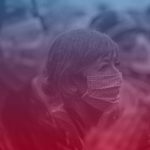 The Role of Women in Peacebuilding and Conflict Transformation
The Role of Women in Peacebuilding and Conflict Transformation 